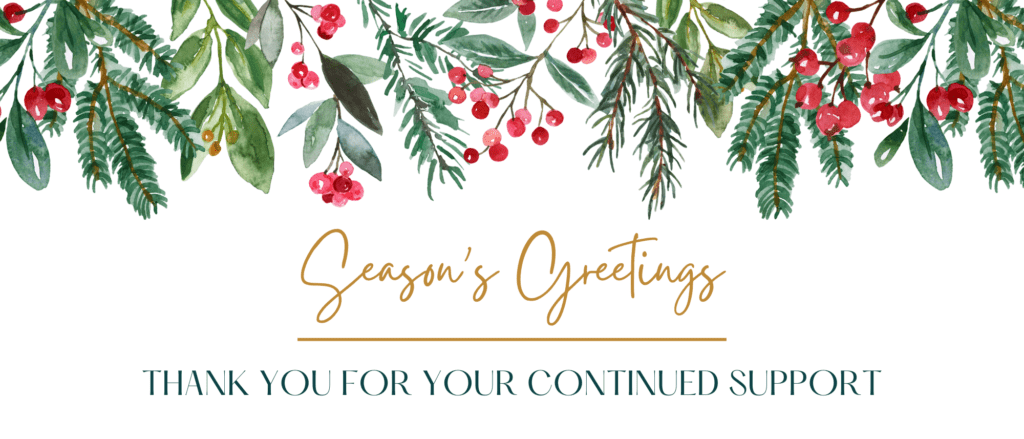
Hello everyone,
With the festive season nearly here, the Stillbirth CRE would like to wish you a safe and peaceful holiday. This holiday season our heartfelt thoughts are with those who have lost loved ones. We trust you are able to find the time and space to connect and remember them in your own way. If you feel you need more support during the festive season, Red Nose and Bears of Hope will continue to be there for you.
The Stillbirth CRE would like to take this opportunity to thank you for your continuing support throughout the past year.
The PSANZ 2023 Congress is fast approaching and is being held from 5th – 8th of March in Melbourne.
The Stillbirth CRE will also be hosting a pre-congress half-day workshop on the 3rd of March.
More details for the pre-congress to come, keep up to date via the website below.
Project Engage is in the final development stage of co-creating a guide, which aims to demystify the research process for bereaved parents and their families. We hope this guide will help provide bereaved parents with the tools, terminology, and knowledge of the research structure and process to become involved in current and future projects.

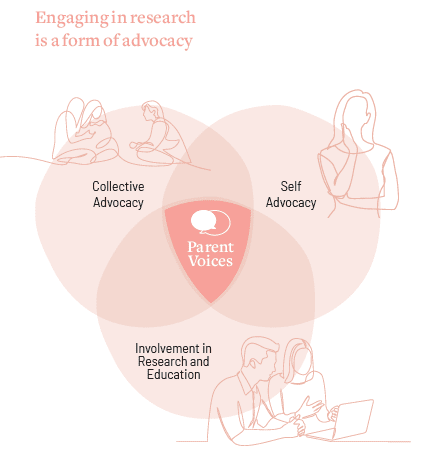
We would like to say a huge thank you to the bereaved parents who provided feedback in our survey in August. Many components of this guide were based on bereaved parents’ feedback including, the topics that were of most interest and importance to include, the addition of examples and stories from bereaved parents about their involvement and key design aspects such as colours, graphs and images used.
If you are interested in opportunities to be involved in our research projects, or would like to stay up to date with the progress of this study, please contact us.
The Living with Loss (LWL) randomised control trial (RCT) has now concluded, and we are presently analysing the data for effectiveness and acceptability. The LWL online program has been designed by a team of parents and healthcare professional and covers a broad range of topics and evidence-based strategies to help navigate grief in the short and longer-term. The study protocol for the RCT has been published and is available to be viewed online. Please click to access the article. Feedback from LWL participants has been generally positive. We have highlighted below some of the comments from participants.

“I found the topics useful. When you are grieving & having a foggy head you need reminding of the simple strategies that work like a planner & that it is normal to experience ups and downs in grief rather than being too hard on yourself.”
“This is so pertinent. I can share this with my husband as he does not feel ready to talk to others about losing our daughter Sarah and I want to help him in the best way possible as he grieves in his own way…The characters in this particular module really spoke to me. It's been hard enough losing our baby girl let alone all the relationship issues with extended family. I was so hurt by some comments and as a result could not communicate appropriately- causing more issues and hurt. It’s nice to know it is normal to feel this way and that there are simple steps that I can take to bridge gaps and communicate needs to others. Thank you”
“I absolutely loved the stories and then how it linked into some strategies for us. Even the knowledge of grief itself and what can happen is so helpful.”
We are excited to be moving the program to a new online platform which will improve the usability and functionality. Many of these aspects have been commented on by participants while completing the program. Look out for the new-look program in the new year.
If you are interested in joining us to revise the LWL program for the national launch in 2023 please let us know by emailing stillbirthcre@mater.uq.edu.au.

Improving pregnancy care - The Stillbirth CRE is conducting a national survey of women who have given birth in Australia within the last 6 months and received most of their antenatal care in Australia. The survey only takes about 10 minute to complete. Every response will help the Safer Baby team to evaluate and improve the pregnancy care women receive in Australia, focused on reducing the rate of stillbirth. Please click the link HERE to complete.
Care in a pregnancy after loss - Becoming pregnant after the death of a baby is often a daunting prospect and can be a period of intense anxiety and fear for many parents. Improving care for parents in a pregnancy after loss has been identified in the National Stillbirth Action and Implementation Plan (NSAIP) and is a priority area of the Stillbirth CRE. Together with the Stillbirth Foundation Australia, Red Nose, Women’s Healthcare Australasia (WHA), we have launched two new online surveys to understand parent experiences of care and what is most important in a pregnancy after loss. Please click the link HERE for more information about the survey.
Improving stillbirth investigations across Australia – Together with the Royal Australian and New Zealand College of Radiologists (RANZCR), Red Nose Australia, Stillbirth Foundation Australia and The Royal College of Pathologists Australasia (RACP), we have launched an online survey to understand parent experiences around stillbirth investigations following the loss of a baby. The findings of this research will help inform the development of new resources to support parents and their healthcare providers around the time of a stillbirth to help parents make the decision that is best for them. Please click the link HERE for more information about the survey.

Care in a pregnancy after loss – This online survey aims to understand the maternity care services available in Australia to parents during a pregnancy after loss. We are interested in identifying the models of care available, variations across Australia and examples of best practice care. Your contribution will help inform the development of best practice guidelines and implementation of a best practice model of care for Australian health systems that leads to optimal outcomes for mothers, their babies, and families. Please click HERE for more information about this study.
Improving stillbirth investigations across Australia - The recently released National Stillbirth Action and Implementation Plan (NSAIP) is the first national plan to strategically address the issue of stillbirth in Australia. The plan sets out a series of actions including evaluation of current and optimal provision of medical investigations following stillbirth. Funding has now been allocated to analyse the current state/landscape supporting stillbirth investigations, with options to improve linkages and support national consistency with service delivery, including access and quality of service. Please click HERE for more information about the survey.
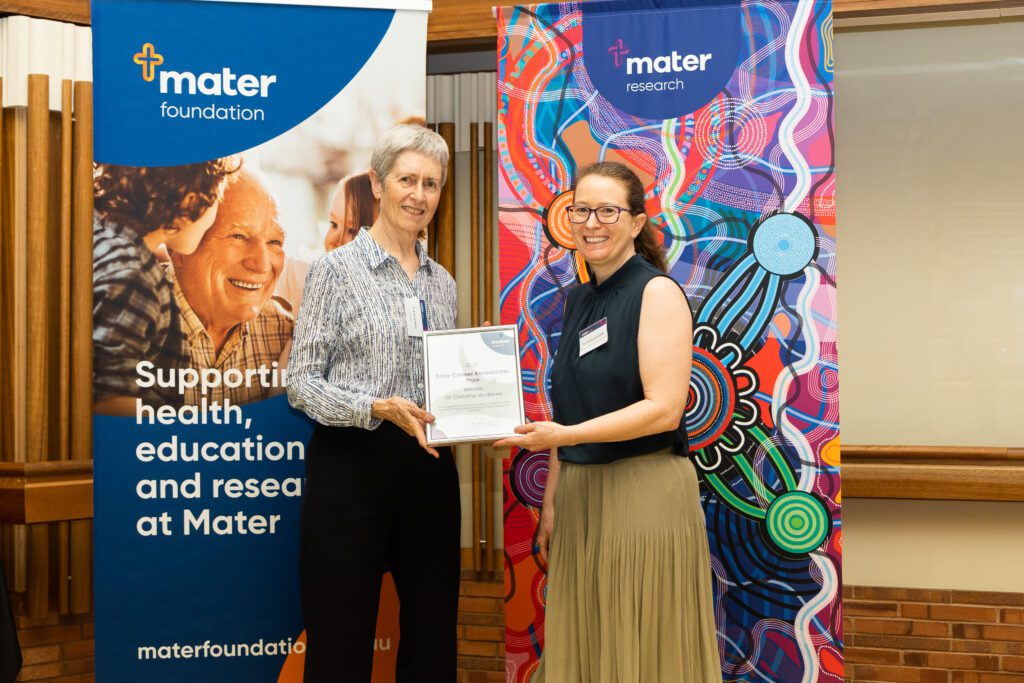

IMproving Perinatal Mortality Review and Outcomes Via Education (IMPROVE)
It’s been a big year for the IMPROVE program! We ran 4 Train the Trainers workshops in total across QLD, ACT, TAS and WA, and welcomed over 50 new educators to the team. We had 336 clinicians attend 12 face-to-face workshops across the country and received some really positive feedback. We couldn’t do it without our wonderful educators who volunteer their time, and would like to acknowledge all of their hard work and commitment to the program. We’re now gearing up for another big year in 2023!
IMPROVE workshops are designed to address the educational needs of health professionals involved in maternity and newborn care in managing perinatal death based on the Perinatal Society of Australia and New Zealand’s Clinical Practice Guideline for Care Around Stillbirth and Neonatal Death.
If you would like to get involved, please contact us improve@mater.au.edu.au
Fetal Growth Restriction Workshop
The Fetal Growth Restriction online workshop was held in November, and there were 343 attendees from all over the world. There were participants from Australia, Fiji, India, Mexico, New Zealand, Qatar, Solomon Islands, South Africa and the United Kingdom. A huge thank you to Tionie, Glenn, Sean and Fabricio for running these workshops. We will send out details for the 2023 workshops updates via email and twitter, make sure you stay subscribed and join our socials so you don't miss out!
2022 Equity and Diversity Forum & Annual National Stillbirth Forum
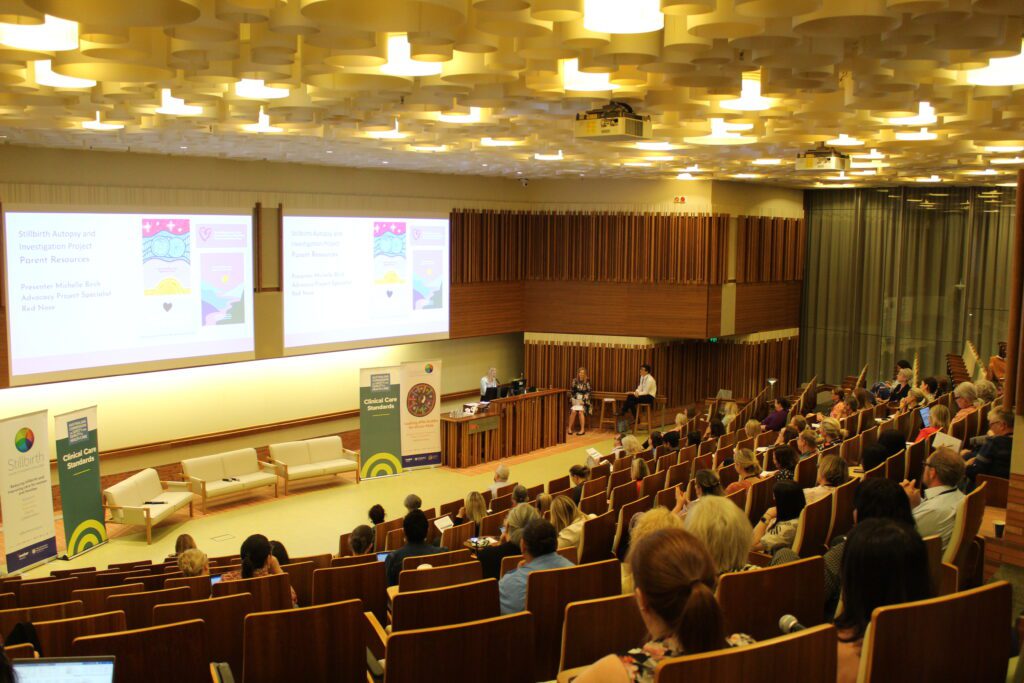
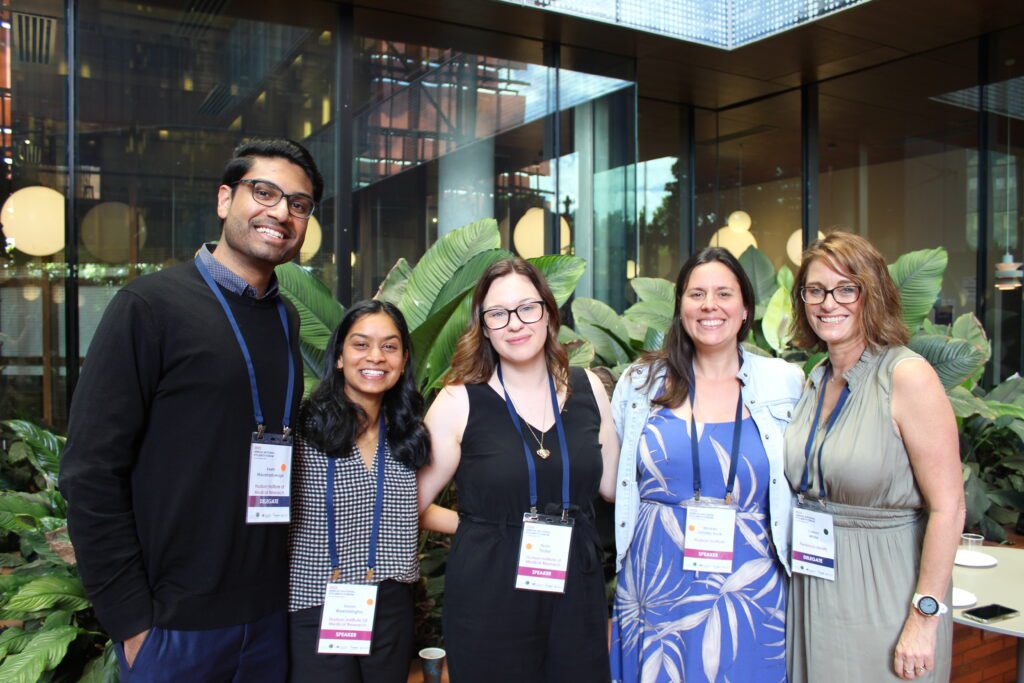
On 3rd & 4th of November the Stillbirth CRE hosted the first Equity and Diversity Forum and the third Annual National Stillbirth Forum at the Translational Research Institute. This 2-day hybrid event included presentations, smaller breakout discussion groups and the launch of the Stillbirth Clinic Care Standard Stillbirth Clinical Care Standard (2022) | Australian Commission on Safety and Quality in Health Care. This exciting program had amazing keynote speakers including Ruth De Souza who spoke on day 1 about how we can make birthing services culturally safe. On day 2 we were joined by Dr Yvette Rowe who presented about Birthing on Country and Dr Alexander Heazell who joined us live from the UK and spoke about UK's approaches to stillbirth reduction.
Across the 2 days we had about 100 in person and 140 virtual attendees join us along with a further 568 virtual attendees for the Stillbirth Clinic Standard launch session. We would like to say a huge thank you to all of our speakers and chairs and all those who assisted on the day. The webinars will be available on the Stillbirth CRE website in early 2023!
The Safer Baby Bundle team have been working hard throughout the year and have hosted multiple Forum’s across the country, including the launch in Northern Territory and two educational forums.
Western Australia Safer Baby Bundle Forum
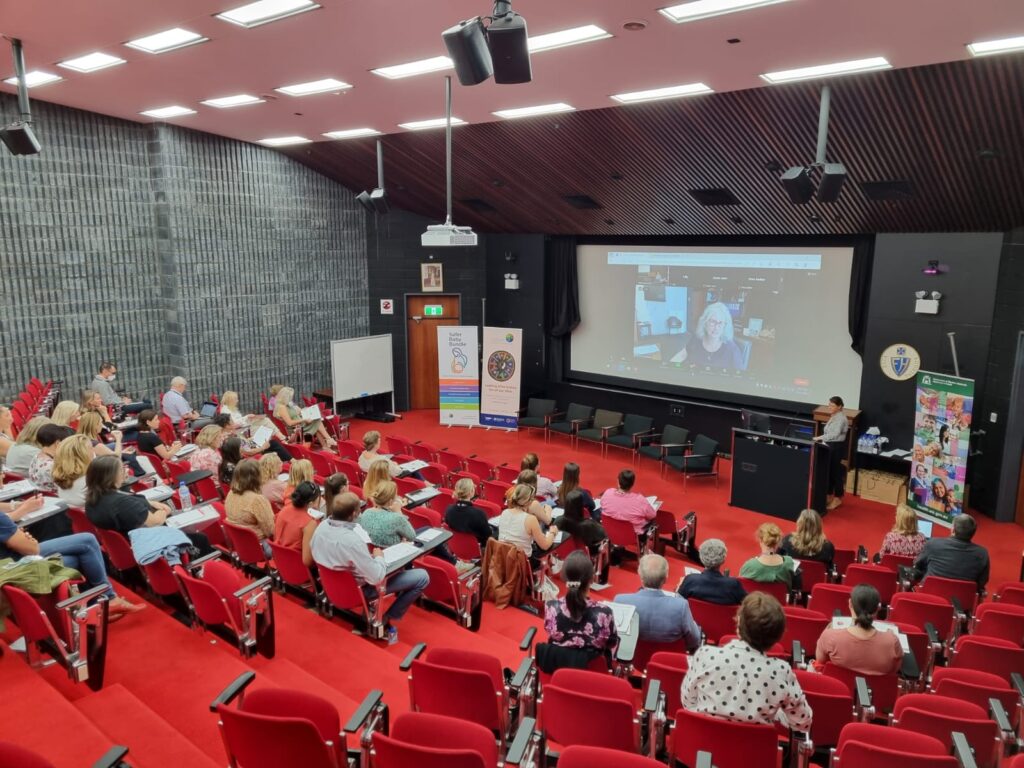
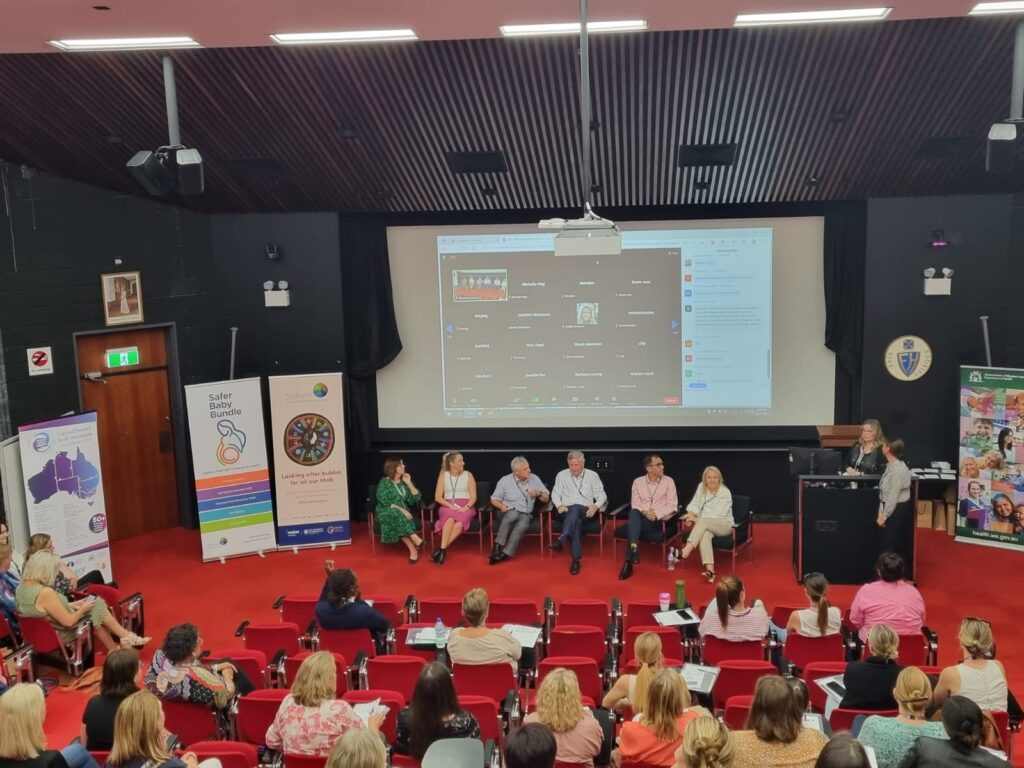
On the 21st of November the Stillbirth CRE, Western Department of Health and the Australian Preterm Birth Prevention Alliance (The Alliance) partnered together to educate WA clinicians about the 5 elements of the Safer Baby Bundle and other best practices for stillbirth prevention. They were joined by other leading experts/groups in perinatal research space including Professor John Newnham, Professor Jane Warland, Dr Jared Watts and Dr Robina Redknap. It was an honor to hear from Cathy Nguyen who shared her experience about losing her daughter Sage bringing important context to the forum. The forum itself was a hybrid event with 70 people in person, and 74 people virtually including Aboriginal and Torres Strait Islander Healthcare workers, midwives, doctors, government representatives, bereaved parents, students, and researchers, indicating strong interest in the SBB throughout WA. There was a lot of positive feedback from participants, many noting they plan on incorporating their learnings into their practice. The team are looking forward to continuing to work with WA in 2023.
2022 National Safer Baby Bundle Virtual Forum
On 22nd of July 2022 the NHMRC Centre for Research Excellence in Stillbirth (Stillbirth CRE) hosted the second annual National Safer Baby Bundle (SBB) Virtual Forum.
The 4-hour free online event included presentations, interactive SBB element discussions sessions, and a Fetal Growth Restriction (FGR) workshop. There were 209 participants for the forum and 156 for the Fetal Growth Restriction (FGR) workshop. All Australian states and territories were well represented across the 4 hour forum. A small number also logged on from overseas- New Zealand and the United Kingdom. Participants included (but are not limited to) midwives, obstetricians, researchers, maternal fetal medicine specialists, consumer representatives, obstetric registrars, and primary healthcare managers. A lot of positive comments mentioned the value of hearing implementation experiences and initiatives from other sites. We hope to deliver more events like this in 2023.
Safer Baby Bundle's Northern Territory Launch
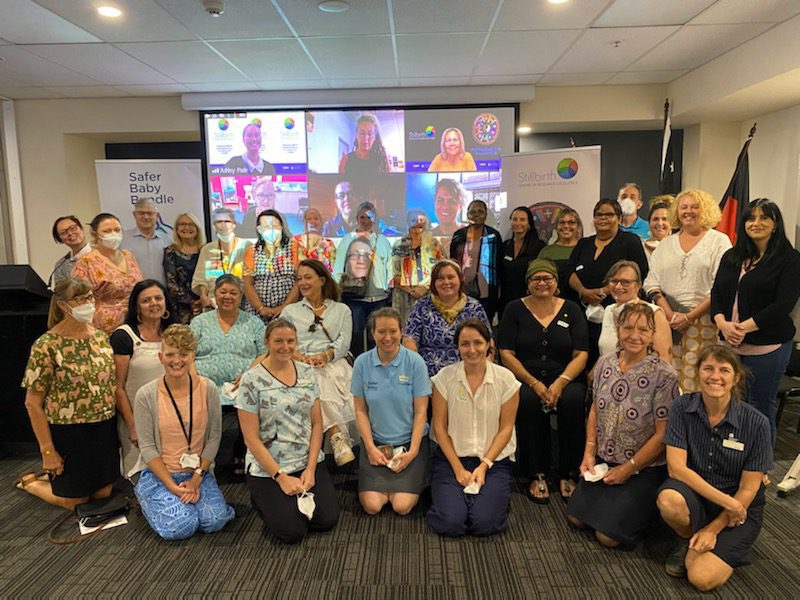
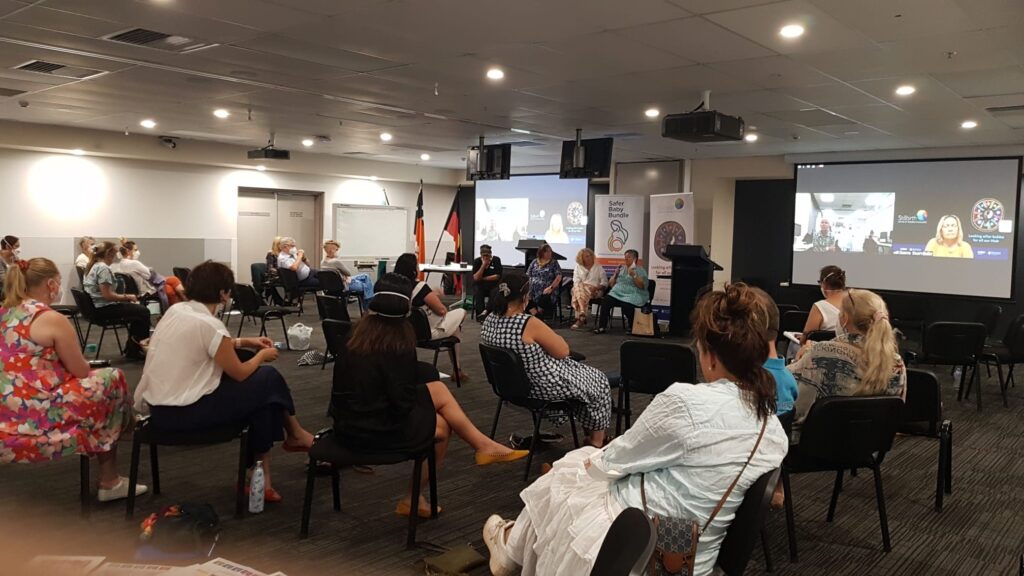
The Stillbirth CRE team were excited to travel to Darwin and launch Safer Baby Bundle in the Northern Territory in partnership with Northern Territory Department of Health earlier this year on the 6th of May. This hybrid event was held at the Royal Darwin Hospital and included presentations and workshops which highlighted the Safer Baby Bundle (SBB) best practice recommendations and implementation in the NT. There was 32 face-to-face, and 37 virtually, indicating significant interest in the SBB within the Northern Territory which is very promising. Participants included midwives, nurses, Aboriginal health workers, parent advocates, senior maternity executives, policymakers, and researchers. Clinicians were really excited to hear about how the Safer Baby Bundle could be implemented in indigenous communities. The Northern Territory has a new project officer who is working closely with our Safer Baby Bundle team so watch this space!